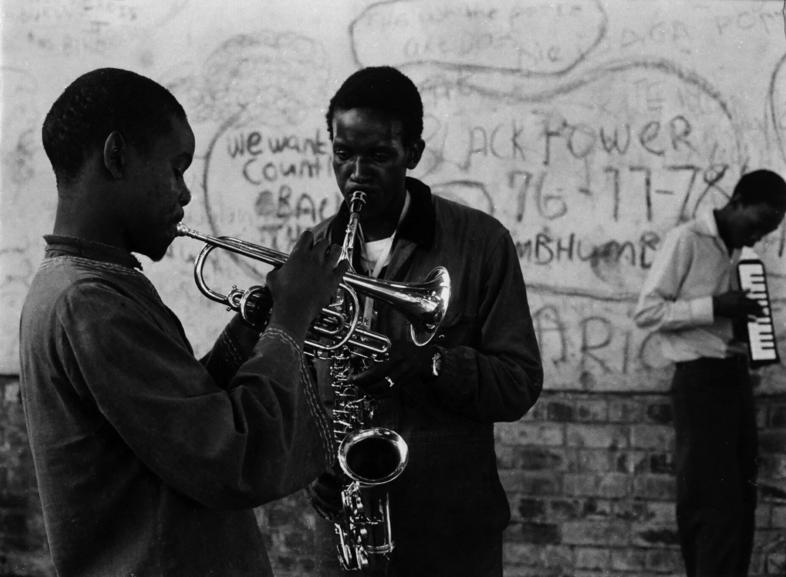
South African Jazz History
Share
Nestled within the vibrant cultural tapestry of South Africa lies a musical heartbeat that resonates through its streets and echoes in its soul: jazz. Originating from its early roots in the 20th century, South African jazz has evolved into a dynamic force that reflects the nation’s tumultuous history, its resilience, and its creative spirit. From the sophisticated sounds of Sophiatown to the politically charged tunes of the Apartheid era, jazz in South Africa has not only endured but flourished, continuously reinventing itself while preserving its core essence.
A Rich History
The history of jazz in South Africa is deeply intertwined with the social and political landscape of the country. In the early 20th century, jazz found its way into the hearts of South Africans through the influence of American musicians and the local adaptation of swing and bebop styles. Places like Sophiatown in Johannesburg became hotbeds of musical creativity and cultural expression, where artists like Hugh Masekela and Miriam Makeba honed their craft and forged a unique South African jazz identity.
Jazz and Apartheid
The Apartheid era presented significant challenges for South African jazz musicians. The oppressive regime sought to suppress cultural expression that contradicted its ideologies, leading to censorship and restrictions on performances. However, jazz persisted as a form of resistance and a medium for social commentary. Musicians like Abdullah Ibrahim (formerly known as Dollar Brand) used their music to convey messages of unity and defiance, often performing in underground venues known as shebeens.
The Jazz Renaissance
With the dawn of democracy in 1994, South African jazz experienced a renaissance. Freed from the shackles of censorship, musicians explored new sounds and collaborations, blending traditional African rhythms with contemporary jazz styles. The jazz scene expanded beyond Johannesburg to Cape Town, Durban, and other urban centers, fostering a diverse and eclectic musical landscape. Artists like Sibongile Khumalo, Moses Molelekwa, and Marcus Wyatt emerged as prominent figures, pushing the boundaries of jazz while staying rooted in their cultural heritage.
Contemporary Trends and Challenges
Today, South African jazz continues to evolve, embracing influences from across the globe while maintaining its distinct character. Fusion genres like afro-jazz, jazz-rock, and electronic jazz have gained popularity, appealing to a younger audience while preserving the genre’s traditional roots. Festivals such as the Cape Town International Jazz Festival and the Joy of Jazz in Johannesburg attract international acts and showcase local talent, contributing to South Africa’s reputation as a jazz hub.
However, challenges remain. Economic disparities and limited funding pose obstacles for aspiring musicians, particularly those from marginalized communities. The industry also grapples with issues of representation and gender equality, prompting conversations about inclusivity and accessibility within jazz circles.
Preserving the Legacy
Despite these challenges, the spirit of South African jazz endures—a testament to its resilience and cultural significance. Organizations and initiatives like the South African Jazz Archive work tirelessly to document and preserve the legacy of jazz pioneers, ensuring that future generations can appreciate and learn from their contributions.
Jazz in South Africa is a dynamic force that reflects the nation’s complex history, cultural diversity, and unwavering spirit. From its humble beginnings in the streets of Sophiatown to its global resonance today, South African jazz continues to captivate audiences with its soulful melodies and powerful narratives. As the genre evolves and embraces new influences, one thing remains certain: the spirit of jazz in South Africa will continue to inspire, provoke, and endure, shaping the musical landscape for years to come.
In South Africa, when it comes to jazz, anything goes—but the soulful heartbeat of its music will always remain.





